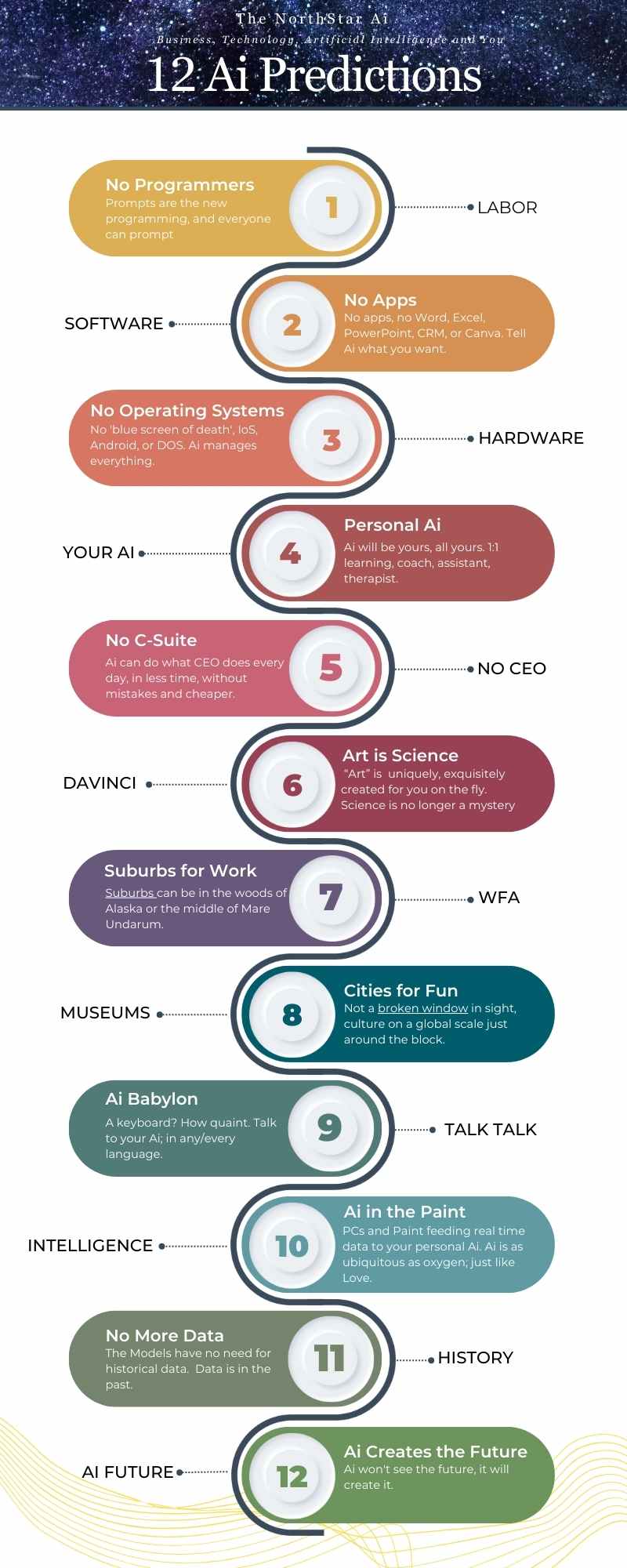 By Charlie G. Peterson, IV The Perils and Promises of Nationalizing Artificial Intelligence Research in the United States Executive Summary:
In a time defined by technological leaps, artificial intelligence (AI) is the pivotal force, poised to reshape society's landscape. The United States faces a monumental decision: whether to nationalize AI research. This choice bears significant implications, laden with both risks and opportunities. The Dangers of Nationalizing AI Research One primary danger lies in potentially hampering innovation. Historically, the private sector, driven by competition and profit motives, has been a fertile ground for breakthroughs. Titans like Google, Microsoft, and OpenAI have consistently pushed the envelope of AI capabilities. Nationalizing AI research, however, could introduce bureaucratic inertia, slowing the rapid pace necessary in this field. Government agencies, often encumbered by red tape and sluggish decision-making, might struggle to keep pace with the fast-evolving AI landscape. Another significant risk involves the potential misuse of AI technologies by the government. Centralized control raises concerns about power abuse, such as mass surveillance or the development of autonomous weaponry. Historical instances, like the surveillance activities revealed by Edward Snowden, highlight the potential for governmental overreach. Ensuring ethical and responsible use of AI becomes a critical concern, with centralized control potentially exacerbating these issues. The economic impact is another formidable challenge. The AI sector is a powerhouse of economic activity, generating jobs, attracting investments, and fostering startups. Nationalization could disrupt these dynamics, possibly leading to job losses and diminished private investment incentives. This disruption could stall economic growth and weaken the United States' competitive edge in the global AI arena. Moreover, there's the issue of global competitiveness. The U.S. vies with nations like China and Russia, which are heavily investing in AI. Nationalizing AI research might impede America's ability to respond swiftly to international advancements, as private companies often exhibit greater agility and innovation than government-led initiatives. Falling behind in the global AI race could have far-reaching repercussions for national security and technological leadership. The Possibilities of Nationalizing AI Research Despite these dangers, compelling arguments support the nationalization of AI research. One of the most significant possibilities is aligning AI development with public interest and national priorities. Government oversight could ensure that AI technologies advance societal well-being rather than being solely profit-driven. This could foster advancements in healthcare, education, and public safety, where AI can profoundly benefit. Nationalizing AI research also addresses ethical development concerns. Centralized control allows for stringent enforcement of ethical guidelines, ensuring responsible AI development. This could mitigate risks like system bias, privacy invasion, and harmful applications. A government-led approach could prioritize fair and transparent AI systems that uphold democratic values. Furthermore, nationalization could bolster national security. As AI becomes increasingly vital to defense and intelligence operations, centralized oversight could ensure robust security measures in AI development. This would help protect critical infrastructure from cyber threats and maintain the United States' strategic advantage in AI capabilities. The potential for coordinated large-scale projects is another significant advantage. Historical precedents like the Manhattan Project during World War II demonstrate how government-led initiatives can achieve groundbreaking results. Nationalizing AI research could spur similar large-scale efforts, tackling grand challenges like climate change, pandemic response, and space exploration by leveraging AI for innovative solutions. Balancing Dangers and Possibilities Ultimately, the decision to nationalize AI research in America requires balancing these risks and opportunities. A hybrid approach might offer a viable solution, with the government playing a more active role in regulating and guiding AI development while still harnessing the innovation and agility of the private sector. Public-private partnerships could align AI research with national interests and ethical standards without stifling innovation. Transparency and accountability will be crucial in any approach. Establishing independent oversight bodies and fostering open dialogue among the government, private sector, and civil society can help mitigate misuse and overreach risks. Encouraging international cooperation and setting global standards for AI development can enhance the positive impacts of nationalized AI research while addressing the dangers. I've seen many historical and technological paradigms come and go.
I believe in a balanced approach. Nationalizing AI research brings about ethical and security benefits, yet the innovative spirit that thrives in the private sector must not be stifled. The synergy between government oversight and private sector agility holds the key to a future where AI can flourish responsibly. Let us tread wisely. Safe journeys and insightful discoveries, Charlie G. Peterson, IV
0 Comments
Your comment will be posted after it is approved.
Leave a Reply. |
Topics & Writers
All
AuthorsGreg Walters Archives
July 2024
|

